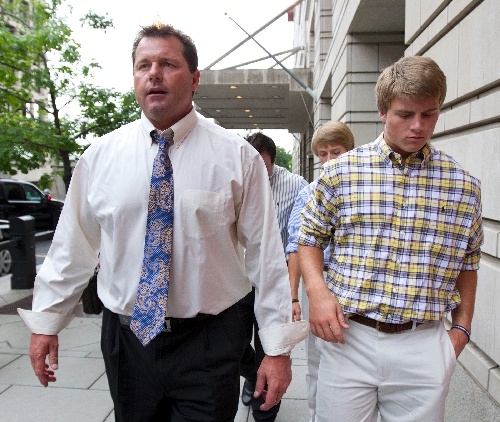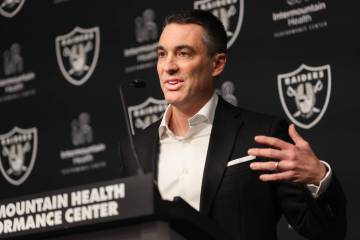‘Final umpires’ set to determine fate
WASHINGTON - The dozen Washingtonians who will decide Roger Clemens' fate heard a day of closing arguments stuffed with attention-getting sound bites. The eight women and four men who mostly care little about baseball then began deliberations Tuesday that will impact one of the most successful pitchers of his generation - and, in a way, the criminal pursuit of athletes accused of illegal doping.
"You," prosecutor Gil Guerrero told the jurors, "are the final umpires here."
They heard a clever line about Clemens being "a Cy Young baseball player" but not "a Cy Young witness." They heard the key witness called "a flawed man" who produced evidence from a "magic beer can." They were asked to debate whether it's "outrageous" that Clemens was charged in the first place, or whether it's a byproduct from Congress' "authority to protect the nation's youth."
Having digested the competing spins on 26 days of testimony by 46 witnesses, the jury met for 15 minutes before being excused for the day at 5 p.m. It will reconvene this afternoon and then, unless it reaches a quick verdict, take off until Monday because of a long-scheduled out-of-town business trip by the judge.
Clemens is charged with perjury, making false statements and obstructing Congress when he testified at a deposition and at a nationally televised hearing in February 2008. The heart of the charges center on his repeated denials that he used steroids and human growth hormone.
Clemens' chief accuser was his longtime strength coach, Brian McNamee, who spent more than a week on the stand and testified that he injected Clemens with both substances. But also essentially on trial was Congress' right to hold the hearings in the first place, and Clemens lawyer Rusty Hardin spent part of his closing statement appealing to the notion that the U.S. government was way out of line.
"What's happened in this case," Hardin said, "is a horrible, horrible overreach by the government and everyone involved."
Prosecutor Gil Guerrero argued that Congress had the right to care because major league baseball players are role models.
"They influence children. ... Congress has to be involved with that," Guerrero said in a packed federal courtroom that included Clemens' wife and four sons. "Congress has the authority to protect the nation's youth."
It's a debate that's timely following two expensive Justice Department drugs-in-sports investigations that bore little fruit. More than seven years of probing yielded a guilty verdict on only one count of obstruction of justice last year against baseball's all-time home run leader, Barry Bonds. A two-year, multicontinent investigation of cyclist Lance Armstrong recently was closed with no charges brought.
The case against Clemens was far from tidy, relying heavily on a witness who carried a lot of personal baggage and physical evidence that sat for years inside a beer can. McNamee was the only person who testified to firsthand knowledge of Clemens using the drugs in question. McNamee said he injected Clemens with steroids in 1998, 2000 and 2001 and with HGH in 2000. He also said he saved the needle and other waste from a 2001 steroids injection of Clemens and stored it in and around a Miller Lite can and put it in a FedEx box. Some of the waste was shown to have Clemens' DNA and steroids on it.
Clemens' lawyers spent much of the trial attacking McNamee's credibility and integrity. McNamee acknowledged that details of his own story changed over the years, but he said that partly was because he initially tried to protect Clemens as much as possible.
"Saying that Brian McNamee lies zero times," Hardin said, "is kind of like calling the Grand Canyon a ditch."
Hardin produced a chart titled: "Brian McNamee's testimony is admittedly not credible." It listed more than two dozen times in which Hardin said McNamee either lied outright or said something that resulted from a "mistake" or "bad memory."
Guerrero conceded that McNamee is a "flawed man." "We're not asking you to even like him," Guerrero said. "Brian McNamee did a lot of things that aren't nice, and we know that."
But, the prosecutor argued, that made McNamee the ideal partner for Clemens' alleged use of steroids and HGH, substances that Clemens wouldn't be able to receive from, say, a team doctor or head athletic trainer.
"Brian McNamee," Guerrero said, "would do whatever Roger Clemens wanted."




























